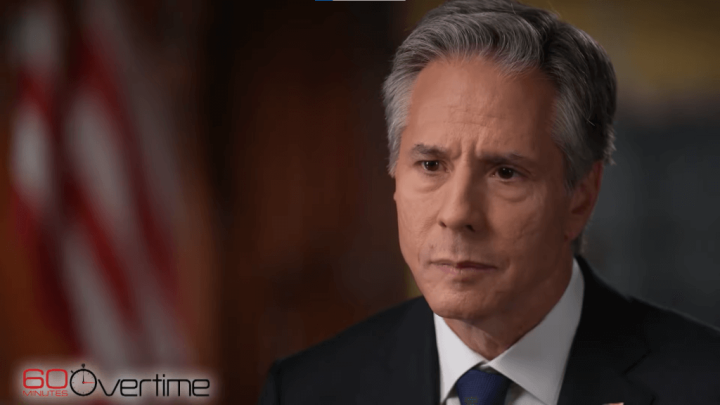
Taipei, Sept. 26 (CNA) United States Secretary of State Antony Blinken warned that if Taiwan is attacked, the global economy could face devastation as most semiconductors in the world are produced there.
In an interview with Scott Pelly on CBS's 60 Minutes that aired on Sunday, Blinken was asked whether instability across the Taiwan Strait would be felt around the world.
The top American diplomat said China has acted more and more aggressively against Taiwan, posing a threat to peace and stability in the entire region, while economically the whole world could feel the impact of such aggression.
Blinken talked with CBS's Pelly after meeting with his Chinese counterpart Wang Yi (王毅) on the sidelines of the United Nations General Assembly held in New York on Sept. 23.
According to Blinken, the U.S. has invested heavily in its semiconductor capacity with American firms designing the chips, but they are mainly produced in Taiwan.
"Taiwan itself, were anything to happen, it is where virtually all the semiconductors are made," Blinken said.
"If that's disrupted, the effects that that would have on the global economy could be devastating," he said.
In a pre-recorded interview with CBS' "60 Minutes" program that aired on Sept. 18, U.S. President Joe Biden told Pelley that the U.S. would defend Taiwan "if in fact there was an unprecedented attack."
It was the fourth time Biden has made such a public statement, though each time it has been followed by a clarification from administration officials who seemed to walk back his comments.
When Blinken was asked whether Wang asked him to explain Biden's remarks when they met, he told Pelly that he and his Chinese counterpart had a conversion about the two different approaches toward Taiwan.
"I reiterated what the President has said and what he's said clearly and consistently: our continued adherence to the "One China" policy; our determination that the differences be resolved peacefully," Blinken said.
"Our insistence that peace and stability be maintained in the Taiwan Straits; and our deep concern that China was taking actions to try to change that status quo. That's what the issue is," Blinken added.
Over the past few decades, the U.S. has intentionally maintained a stance characterized as "strategic ambiguity" regarding whether it would come to Taiwan's defense in the event of an attack by China.
Under this stance, Washington is deliberately vague about whether the U.S. would do more than just provide Taiwan with weapons based on the Taiwan Relations Act (TRA) and actually send troops to help Taiwan fight China.
The Act was enacted in 1979 to maintain commercial, cultural, and other unofficial relations between the U.S. and Taiwan after Washington switched diplomatic recognition from Taipei to Beijing.
The TRA also requires the U.S. "to provide Taiwan with arms of a defensive character."